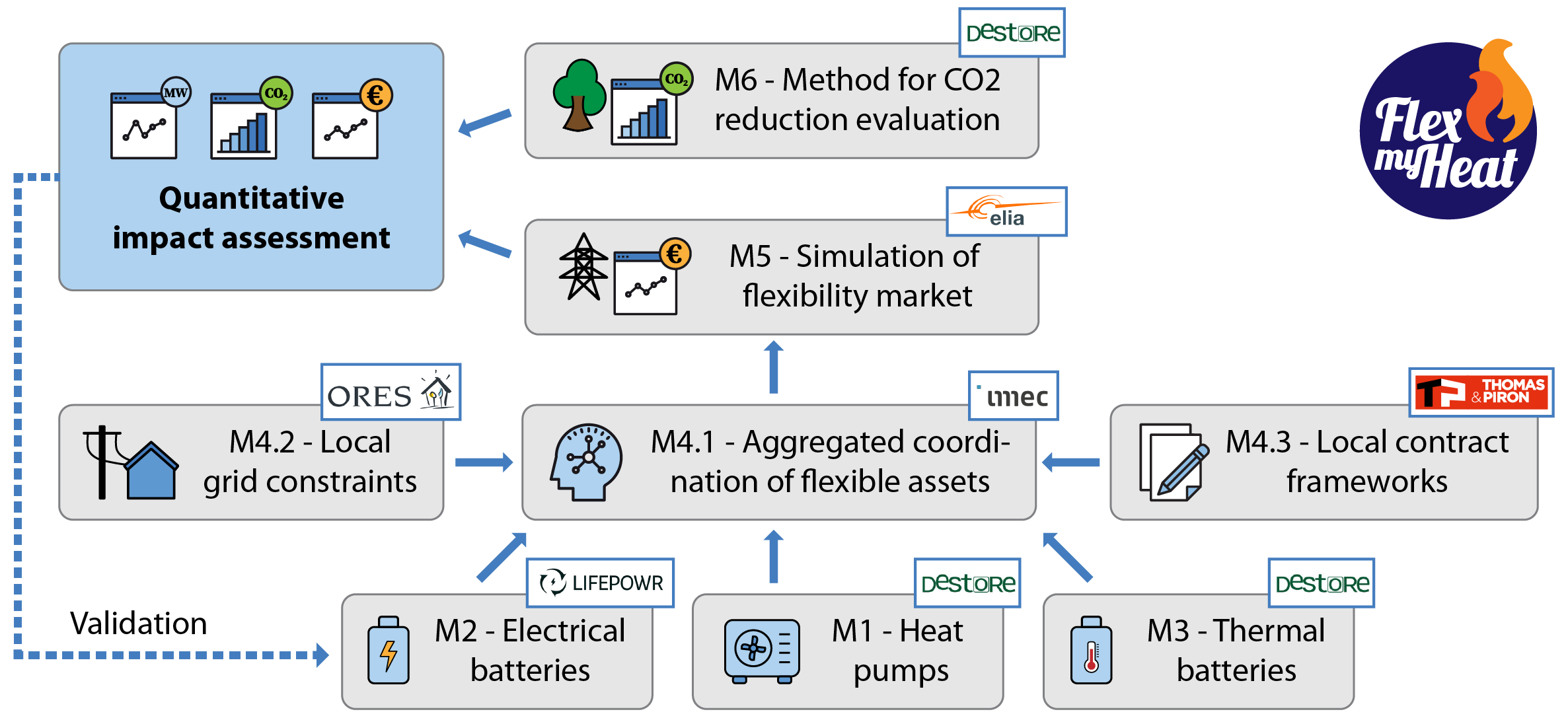To quantitatively assess the impacts and flexibility opportunities of heat pumps and decentralized storage, FlexMyHeat will develop a set of different models and methodologies.

Models
- M1 - Heat pumps: Model capturing the behavior of a single heat pump, accurately representing the quarter hour power consumption profiles, the energy constraints, the technical constraints of the asset, the flexibility potential, and the deployment levels in 2030 and 2050.
- M2 - Electrical batteries: Model describing a single electrical battery, representing aspects such as energy capacity, charging/discharging rates, technical constraints including rate of battery degradation, etc.
- M3 - Thermal batteries: Model representing the dynamics of a thermal battery and the associated technical and economic limitations of their flexible behavior.
- M4.1 - Aggregated coordination of flexible assets: Data-driven practical and realistic (e.g., no hindsight) control strategies for exploiting the aggregated flexibility of heat pumps coupled to storage solutions. These models and strategies will be used in a simulation environment that includes the necessary diversity, at national level, to determine the flexibility power and quarter hour profiles.
- M4.2 - Local grid constraints: Mathematical representation of the local grid constraints as input to model M4.1. This model will allow to assess how much heat pump and storage flexibility effectively can be used on the various flexibility markets.
- M4.3 - Local contract frameworks: Mathematical representation of the economic structure of local contractual frameworks (such as energy communities), as input to model 4.1. This model will allow to assess a.o. the impact of different pricing schemes used within those local communities.
- M5 - Simulation of flexibility market: Mathematical representation of the electricity market and simulation of the market conditions to assess the economical and system impacts of the flexibility potential in the different flexibility service models (ranging from day-ahead markets to ancillary services (aFRR, FCR), as well as the new consumer-centric market design).
- M6 - Method for CO2 reduction evaluation: Proposal of a method to evaluate the CO2 reduction engendered by the flexible use of heat pumps coupled to storage solutions, including a full life cycle analysis encompassing construction, operation and disposal.
The overall impact assessment will be a result of model M5 form the basis for a critical thinking towards the use of heat pumps and storage as electricity demand modulation devices. The output of the simulation for each market scenario will drive the assessment of the costs and benefits of the different services.
The results of M6 will enable the fundamental evaluation of the environmental impact and meaningfulness of the assumed flexibility mechanisms.
